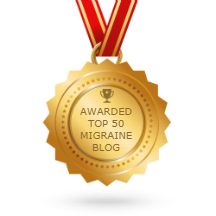Finding Dory: My Experience with Memory Loss
I can't really remember the spring semester of my junior year of high school. No, really, I can't. The last memory I really have is watching Annie Hall on New Years Eve, and then my next clear memory is my junior prom in May where I went home directly after the dance. There's a couple sparse memories here and there, but the rest of it is pretty grey and cloudy.
Over July Fourth weekend, I saw Finding Dory with my family. There was something about Dory that reminded me of how I felt when I was very sick. There were multiple periods of time where I struggled to read, write and focus. As a consequence, my memory was heavily affected to the point that I couldn't recall information. Sometimes, I would be talking to someone and forget what I was talking about mid-sentence. Like Dory, no one really understood what was going on or how to help me because I couldn't remember or finish my thoughts. Sometimes I would be reduced to tears trying to find words just to make a simple sentence. It was frustrating, confusing and scary. I never realized how much I took my ability to talk, read and write for granted until it became almost impossible. As much as I tried to keep going, I felt incapacitated and discouraged.
Neurologists did full work-ups, sending me through test after test finding nothing as to why this was happening to me. I was sent to doctor after doctor trying to figure out why my migraines were causing me to lose all quality of life. When I was in school, I would try and keep quiet so I wouldn't be called on in class and have to talk in front of others. Talking became a chore, something that I dreaded doing in front of people who didn't know the medical details of what I was going through.To cope, I became increasingly better at ways to find words when I would be unable to find the right word. I would keep on throwing out words until I found the right one, or my friends and family got the gist and filled it in. As someone who loves words, (I talk and write A LOT), losing my speech and memory made me feel like I had lost my life to my illness.
Memory loss is scary. It's frustrating and unnerving. Imagine a day where right after you do something, you forget what you just did. Even just creating simple lists becomes difficult. For me, I could encode new information (basically make memories) but I could not retrieve them from my memory. Studying for a test was infuriating because I could learn the information, but then forget it right after I said it. I honestly thought that my dreams of becoming a diplomat or running my own business were gone. Now, I know that I can achieve anything that I put my mind to. But then, my world as I knew it was gone.
The Spring semester of my senior year, I was put on an anti-Alzheimers drug called Namenda (generic name Memantine). It sounded crazy at the time, a 17 year old girl who didn't have Alzheimers on an Alzheimers drug. However, this drug made it possible for me to start to remember, encode and retrieve information. Namenda contained glutamate, which, through receptors, aids in memory formation, neural communication and learning. This off-label usage of Namenda, first used in a study by Dr. Andy Charles, allowed me to get part of my life back. While I still have migraines, my ability to remember and encode is less impaired than it was almost two years ago. Losing my memory and my words has made me a stronger person. It also made me thankful that I am able to speak, read and write again. Just like Dory, I kept swimming and finding my own way to function in order to live my life the best that I could.





Thanks for sharing great information about memory loss. In the market there are many tonics and herbal syrup for memory loss issue or problem. So do not worry about that.
ReplyDelete